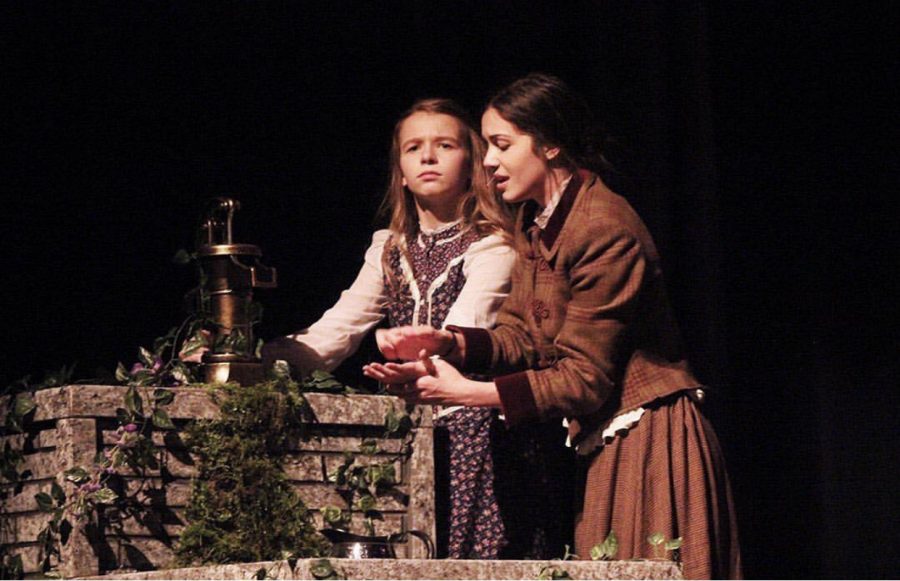MCHS Presents: The Miracle Worker
December 12, 2017
“Words can be her eyes to everything in the world outside of her, and inside too. ” – Annie Sullivan.
“The Miracle Worker” is a moving, sensational drama…. The story follows The Keller Family in 1880’s Tuscaloosa, Alabama. Helen Keller is a child that was struck with illness as a baby; leaving her deaf, blind, and mute… aching to speak out. In attempts to reach their daughter, Kate and Captain Arthur Keller seek help from pupil Annie Sullivan, who was blind too.
Annie accepts this challenge, she wants to teach Helen that language is the most important thing that she could possibly learn. With language, Helen can share ideas, communicate, and express her feelings. However, when Annie arrives, the tension between her and the family begins to surface. Annie sees that the family takes pity on Helen, allowing her to do whatever she pleases while treating her with sweets such as peppermint candy or cake so that she stops throwing tantrums. Annie’s first mission then becomes making obedience a priority.
Helen takes a natural aversion to Annie. She begins to test her by physically fighting her, resisting her lessons, and destroying the home. Annie never gives up, however, and sees this as even more motivation to teach her out of it. We see this in the intense “Breakfast Battle” scene, in which Annie is astonished that the Keller family allows Helen to eat with her hands from everyone’s plates. Annie establishes that Helen needs to learn proper manners, and she wrestles Helen into eating with a spoon and, of course, folding her napkin, which leaves mother Kate in tears.
Eventually, Annie takes initiative and explains to the family that she needs time alone with Helen to teach her out of her ways. “I don’t think Helen’s worst handicap is her deafness or blindness, I think it’s your love, and pity,” Annie tells Captain and Kate.
Through a series of weeks Annie spends with Helen, we can see that the bond between them strengthens as the gift of knowledge slowly comes to her. Annie never stops spelling to her, and Helen even experiences things such as doing arts and crafts, having a chick born in her hands, and spelling words in her sleep.
Though the entirety of this play is a bundle of powerful emotions, the ending is perhaps, in my opinion, the most gripping. We see Helen briefly revert back to her own ways at her homecoming dinner by throwing her napkin on the floor, snatching food with her bare hands, and spilling a pitcher of water on Annie. While the Kellers, once more, see their pity get the best of them, Annie takes Helen outside to make her re-fill the pitcher because she knows how important it is to keep her to what she has worked so tremendously to learn. As Helen’s hands touch the water, she says the words, “Wah-wah”, which were her words for water at six months old. “Step”, “ground”, “mother,” “papa”, and “teacher” are the words that follow, and the show concludes with Helen spelling “teacher” into her mother’s hand, giving a pair of keys to Annie, and hugging her.
This production was something like no other. The set was beautifully created and stayed true to the time period. You could truly see the emotions of each actor as they put their heart into this performance. To know that Annie Sullivan and Helen Keller actually went on this journey together is absolutely incredible. Shows such as this one evoke a heartwarming, hopeful feeling, and I am so thankful that this was able to be shared with our community.












